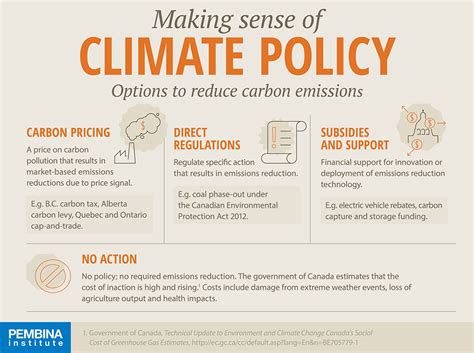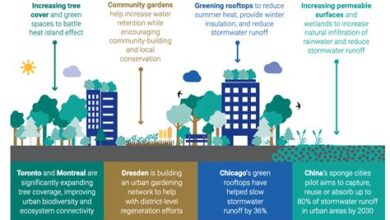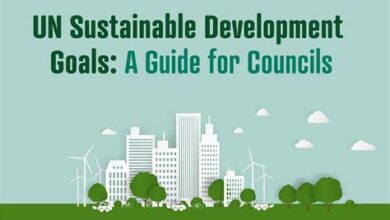Maldives' Approach to Climate Change: Government Initiatives and Policies

Explore government climate change initiatives, policy framework, impact on Maldives, and international collaboration for climate action. Learn about mitigation and adaptation strategies.The Maldives, an archipelago of stunning islands in the Indian Ocean, faces a significant threat from climate change. Rising sea levels, increasingly severe weather patterns, and coral reef bleaching are just some of the many impacts that this small nation is grappling with. In response to these challenges, the Maldivian government has developed a comprehensive range of climate change initiatives and policies aimed at mitigating and adapting to the effects of global warming. From policy frameworks for climate resilience to international collaborations for climate action, the Maldives has been at the forefront of advocating for urgent and collective efforts to address this pressing issue. In this blog post, we will take a closer look at the government’s initiatives and policies, examine the impact of climate change on the Maldives, and explore the country’s mitigation and adaptation strategies. Join us as we delve into how the Maldives is working towards a more sustainable and resilient future in the face of climate change.
Government Climate Change Initiatives
Climate change is a pressing issue that requires immediate action from governments around the world. In the Maldives, the government has taken various initiatives to address the impacts of climate change on the island nation. These initiatives include a focus on renewable energy, sustainable development, and coastal protection.
The Maldives government has recognized the importance of transitioning to renewable energy sources in order to reduce carbon emissions and combat climate change. This has led to the implementation of solar power projects and the exploration of other renewable energy options such as wind and wave energy. These efforts are crucial in reducing the reliance on fossil fuels and mitigating the effects of climate change.
In addition to renewable energy, the Maldivian government has also prioritized coastal protection measures to safeguard against rising sea levels and erosion. This includes the construction of sea walls, artificial reefs, and mangrove restoration projects. By investing in these protective measures, the government aims to increase the resilience of coastal communities and ecosystems in the face of climate change.
Policy Framework for Climate Resilience
Climate change is a global issue that requires coordinated action from governments and policy makers. In the Maldives, the government has recognized the urgency of addressing climate change and has taken proactive measures to build resilience against its impacts. The policy framework for climate resilience in the Maldives encompasses a range of initiatives aimed at mitigating the effects of climate change and safeguarding the country’s natural environment and population.
One of the key components of the policy framework for climate resilience in the Maldives is the development of sustainable infrastructure and coastal protection measures. The government has invested in the construction of sea walls and other barriers to protect vulnerable coastal areas from rising sea levels and storm surges. Additionally, efforts have been made to promote sustainable building practices and to integrate climate resilience into urban planning and development.
Another important aspect of the policy framework for climate resilience in the Maldives is the implementation of measures to preserve and protect the country’s marine and terrestrial ecosystems. This includes the establishment of marine protected areas and the promotion of sustainable fishing practices. The government has also been working to reduce pollution and promote clean energy initiatives to minimize the impact of climate change on the environment.
Impact of Climate Change on Maldives
The impact of climate change on the Maldives has been severe and far-reaching. As a low-lying island nation, the Maldives is particularly vulnerable to the effects of climate change, including rising sea levels, extreme weather events, and ocean acidification. These factors have contributed to erosion of coastal areas, loss of biodiversity, and damage to critical infrastructure. The threat of submergence looms large over the Maldives, with the potential to displace entire communities and threaten the nation’s very existence.
Furthermore, the impact of climate change on the Maldives extends beyond the physical environment, affecting the social and economic fabric of the country. The loss of land and livelihoods due to environmental degradation has led to internal displacement and forced migration, placing strain on resources and exacerbating social tensions. The tourism industry, a key driver of the Maldivian economy, faces significant risks from environmental degradation, with marine ecosystems and coral reefs under threat from climate change.
In response to these challenges, the Government of the Maldives has implemented a range of climate change initiatives and policies aimed at building resilience and mitigating the impact of climate change. These include efforts to reduce greenhouse gas emissions, strengthen coastal defenses, and promote sustainable development practices. International collaboration and support have also played a crucial role in helping the Maldives address the impact of climate change and chart a path towards a more sustainable and secure future.
Mitigation and Adaptation Strategies
Climate change is a pressing issue that requires immediate action to mitigate its effects and adapt to the changes that are already occurring. The Maldives, being a low-lying island nation, is particularly vulnerable to the impacts of climate change, such as sea-level rise and extreme weather events. In response to this threat, the Maldivian government has implemented various mitigation and adaptation strategies to address the challenges posed by climate change.
One of the key mitigation strategies employed by the Maldivian government is to reduce its greenhouse gas emissions. This includes investing in renewable energy sources, such as solar and wind power, to decrease the nation’s reliance on fossil fuels. Additionally, the government has implemented policies to promote energy efficiency and sustainable practices across various sectors, including transportation, tourism, and waste management.
On the adaptation front, the Maldivian government has focused on improving the resilience of its infrastructure and communities to climate-related hazards. This includes the construction of coastal defenses, such as seawalls and artificial reefs, to mitigate the impacts of sea-level rise and erosion. Furthermore, the government has implemented initiatives to enhance the capacity of local communities to cope with climate-related disasters, such as providing education and training on disaster preparedness and response.
International Collaboration for Climate Action
International collaboration for climate action is crucial in addressing the global issue of climate change. In recent years, countries around the world have come together to work towards reducing greenhouse gas emissions and implementing sustainable environmental practices. This collaboration involves sharing resources, knowledge, and expertise to develop effective strategies for combating climate change on a global scale.
One example of international collaboration for climate action is the Paris Agreement, which was signed by 195 countries in 2015. The agreement aims to limit global warming to well below 2 degrees Celsius and pursue efforts to limit the temperature increase to 1.5 degrees Celsius. This landmark agreement demonstrates the commitment of the international community to take collective action to combat climate change.
Additionally, international organizations such as the United Nations Environment Programme (UNEP) and the Intergovernmental Panel on Climate Change (IPCC) play a key role in facilitating collaboration among countries. These organizations provide a platform for sharing research and best practices, as well as coordinating efforts to address climate change at a global level.





